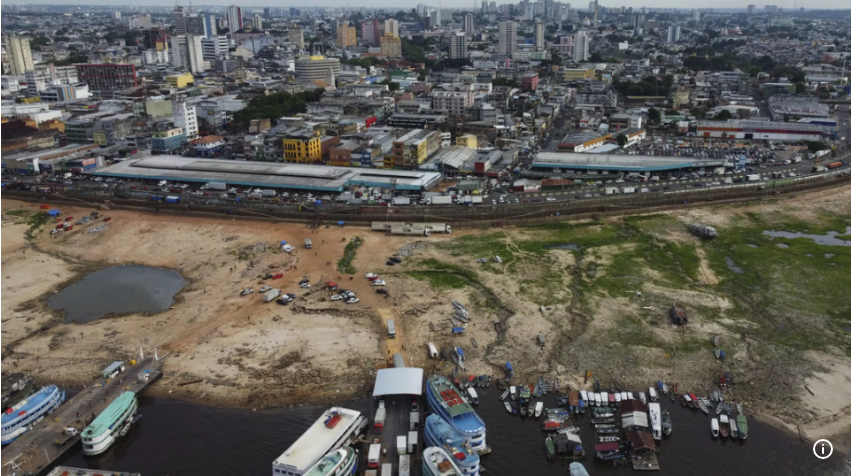Latest
Strike Hits 36 U.S. Ports as Longshoremen Demand Fair Contract

In a significant disruption to U.S. ports, about 45,000 members of the International Longshoremen’s Association (ILA) went on strike as their contract expired at midnight, affecting 36 ports across the East and Gulf coasts. This is the first strike by the union since 1977, following months of negotiations without a finalized deal.
Workers began picketing at the Port of Philadelphia shortly after midnight, chanting, “No work without a fair contract,” with signs emphasizing the union’s stance against job automation. ILA members, represented by President Boise Butler, are demanding a contract that protects their jobs from automation, citing shipping companies’ significant profits during the pandemic.
“Shipping companies made billions by charging high prices, and now we want them to pay back,” Butler said, adding that the union has the leverage to sustain the strike until a fair deal is reached.
The ILA’s initial proposal called for a 77% wage increase over six years to counter inflation and small raises in past years. Base salaries for union members average around $81,000, with some earning up to $200,000 annually due to overtime. The U.S. Maritime Alliance, representing the ports, countered with a 50% wage increase over six years and agreed to maintain limits on automation from the previous contract. However, the union is demanding a complete ban on automation.
Despite movement from both sides, no agreement was reached. The ILA rejected the alliance’s offer, stating it fell short of meeting the union’s demands for wage increases and job protection. ILA President Harold Daggett vowed to continue the strike for as long as necessary to secure better terms.
“We are prepared to fight as long as necessary,” Daggett said in a statement, emphasizing the importance of automation protections.
While the strike has yet to cause major disruptions to consumers, supply chain experts warn of potential impacts if the work stoppage continues. A prolonged strike could lead to delays in shipments of perishable goods like bananas, which are heavily reliant on East Coast ports. It could also affect the delivery of holiday items and auto parts, contributing to higher prices and longer shipping times.
J.P. Morgan estimates that the strike could cost the U.S. economy between $3.8 billion and $4.5 billion per day. The disruption comes just weeks before the presidential election, potentially turning into a contentious issue if shortages arise.
President Joe Biden has refrained from intervening but has directed administration officials to continue encouraging both sides to reach a resolution.
Latest
Flash Floods Devastate Thai Elephant Sanctuary, Killing Two Elephants and Forcing Evacuations
Latest
Severe Drought Causes Record Low Water Levels in Brazil’s Negro River
Latest
Oxford Scientists Develop First Ovarian Cancer Vaccine in Groundbreaking Research
-

 Entertainment1 year ago
Entertainment1 year agoMeta Acquires Tilda Swinton VR Doc ‘Impulse: Playing With Reality’
-

 Business2 years ago
Business2 years agoSaudi Arabia’s Model for Sustainable Aviation Practices
-

 Business2 years ago
Business2 years agoRecent Developments in Small Business Taxes
-

 Home Improvement1 year ago
Home Improvement1 year agoEffective Drain Cleaning: A Key to a Healthy Plumbing System
-

 Politics2 years ago
Politics2 years agoWho was Ebrahim Raisi and his status in Iranian Politics?
-

 Business2 years ago
Business2 years agoCarrectly: Revolutionizing Car Care in Chicago
-

 Sports1 year ago
Sports1 year agoKeely Hodgkinson Wins Britain’s First Athletics Gold at Paris Olympics in 800m
-

 Business2 years ago
Business2 years agoSaudi Arabia: Foreign Direct Investment Rises by 5.6% in Q1



















